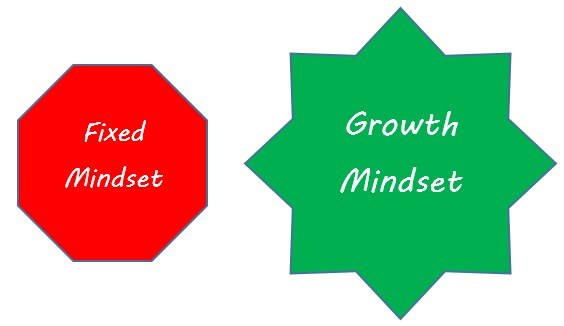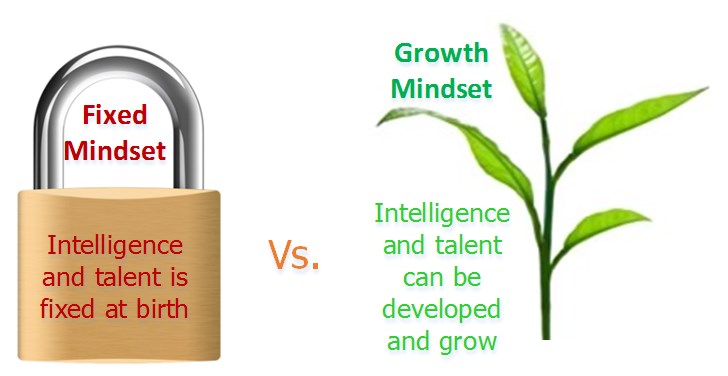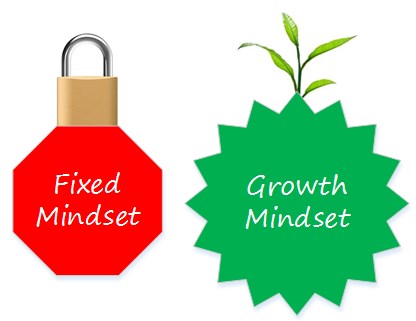Fixed Mindset and Growth Mindset
Dr. Carol Dweck of Stanford University has done extensive research on mindsets. Through her research, Dweck found that the mindset you take affects how you live your life. She believes what you think and how you think determines your behavior and predicts your success.
Fixed Mindset and Growth Mindset
Dr. Dweck determined that some people have a fixed mindset while others have a growth mindset.
Fixed Mindset – you believe your attributes and abilities are inherently fixed and will not change no matter how much effort you put in.
Growth Mindset – you believe your talents and abilities can be improved and developed through your actions.
Mindset
A mindset is a particular way of thinking or a frame of mind. It includes your perceptions or your beliefs about your abilities and personal qualities such as intelligence or creativity.
In her book, Mindset: The New Psychology of Success: How We Can Learn to Fulfill Our Potential, Dr. Dweck, describes both the fixed mindset and growth mindset and how they can affect your performance.
“In a fixed mindset, people believe their basic qualities, like their intelligence or talent, are simply fixed traits. They spend their time documenting their intelligence or talent instead of developing them. They also believe that talent alone creates success—without effort. They’re wrong.”
“In a growth mindset, people believe that their most basic abilities can be developed through dedication and hard work—brains and talent are just the starting point. This view creates a love of learning and a resilience that is essential for great accomplishment. Virtually all great people have had these qualities.”
Effect of Mindsets
Dr. Dweck believes that your mindset creates your entire perception of what is attainable. She believes it shapes your attitude and is the ultimate factor in whether you fail or succeed.
If you have a fixed mindset, you believe you either are or are not good at something, based on your inherent abilities. You believe that you have a certain amount of intelligence and talent and nothing can change that.
On the contrary, if you have a growth mindset, you believe your talents can be developed through hard work, learning, and feedback from others. You believe you can be good at anything, because your abilities are entirely due to your actions.
Mindset and Personal Development
Bottom line is that those with a growth mindset tend to achieve more than those with a more fixed mindset, because they worry less about failing and they put more time and energy into learning and developing skills. Sadly, a fixed mindset often prevents people from developing new skills or abilities that would ultimately bring happiness and personal fulfillment to his or her life.
For example, if you think, “I’m not a good athlete” then that belief acts as an excuse from engaging in athletic activities. The fixed mindset prevents you from failing in the short run, but in the long run it impedes your ability to learn new skills to develop and grow as a person. However, if you had a growth mindset, you would be willing to try a new sport even if you failed at first. You would see failure and setbacks as an indication that you should continue developing those skills, rather than an indicator of something you cannot accomplish.
As a result, if you have a growth mindset, you are more likely to maximize your potential. You tend to take feedback and learn from it to overcome challenges, rather than view it as criticism.
Additional Links
Fixed Mindset vs. Growth Mindset



